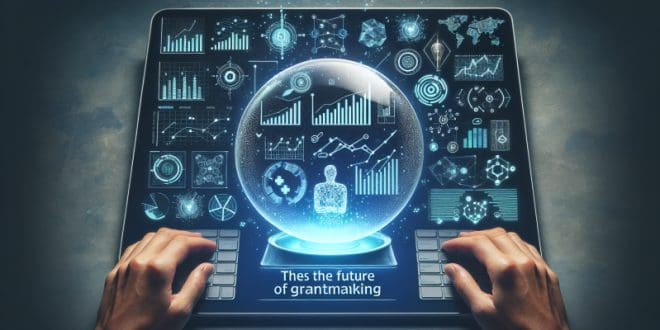In the philanthropic world, grantmaking has traditionally been a process driven by relationships, intuition, and subjective assessment of proposals. However, as we pace into an era characterized by digital transformation, the grantmaking approach is undergoing a significant evolution. The integration of big data and predictive analytics heralds a new chapter in how grants are allocated, monitored, and assessed for impact.
The data revolution presents an immense opportunity for grantors to harness the power of information in order to drive their decision-making processes. Predictive analytics, a form of advanced data analysis, allows grantmakers to sift through vast amounts of information to identify patterns, trends, and potential outcomes. It enables them to answer critical questions: Where are the greatest needs? Which projects have the highest potential for sustainable impact? What strategies will most effectively address systemic issues?
By leveraging data, grantors can shift from a reactive to a proactive stance. No longer solely reliant on the proposals that come their way, they have the means to actively seek out areas of urgent need or underfunding. Predictive models can forecast the outcomes of initiatives before they are funded, allowing grantmakers to prioritize projects with the highest likelihood of success.
However, as with any technological advancement, the move towards data-driven grantmaking raises important ethical considerations. The question of data privacy emerges as a major concern: How can grantmakers ensure the responsible use of sensitive information? Moreover, a reliance on data may unintentionally perpetuate existing biases. Historical datasets may reflect systemic inequities, and algorithms trained on such data risk replicating these patterns.
Therefore, the conversation around data in grantmaking must also encompass the governance and interpretive frameworks that underlie its use. We need to establish clear guidelines that address privacy, consent, and the de-identification of personal data. We must remain vigilant to the biases of both the humans interpreting the data and the data itself. Grantmakers should work in partnership with data analysts to understand the context and limitations of the insights provided by predictive models.
Importantly, the move toward data-driven decision-making must not exclude the human element. Relationships, expertise, and local knowledge remain invaluable components of the grantmaking process. Data should empower, not replace, the wisdom of experienced professionals in the field.
The Future of Grantmaking is one where data-driven insights and human judgment work in concert to maximize the impact of philanthropic efforts. It’s a promising horizon — one marked by greater efficiency, transparency, and accountability. As we navigate this future, it is incumbent upon us, as members of the grants community, to ensure that these advances serve the entire community equitably, and that we remain steadfast in our commitment to improving lives through informed and ethical grantmaking.
Let us embrace this new era with caution and optimism, as we strive to fulfill our shared mission of enacting lasting social change. The road ahead is data-rich and full of potential — let’s navigate it wisely and compassionately, together.
 Grants Club Community
Grants Club Community







